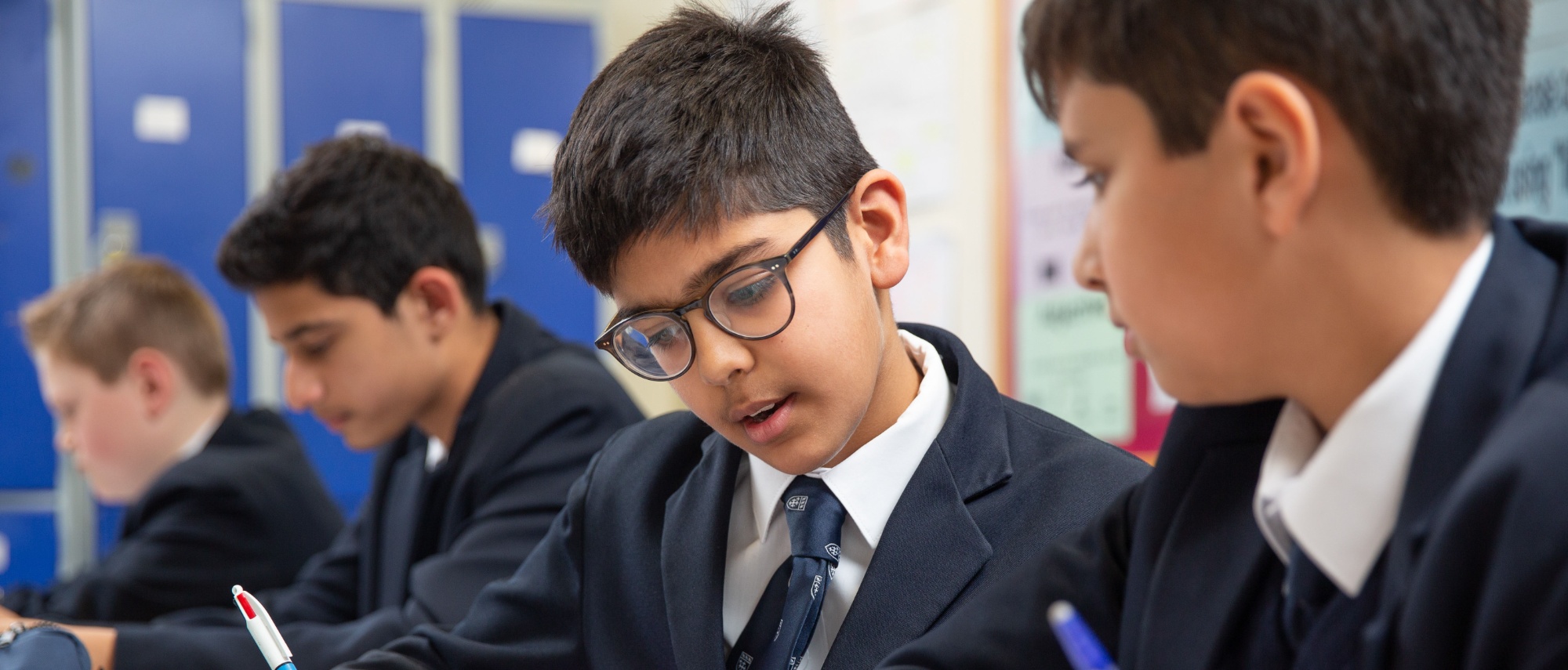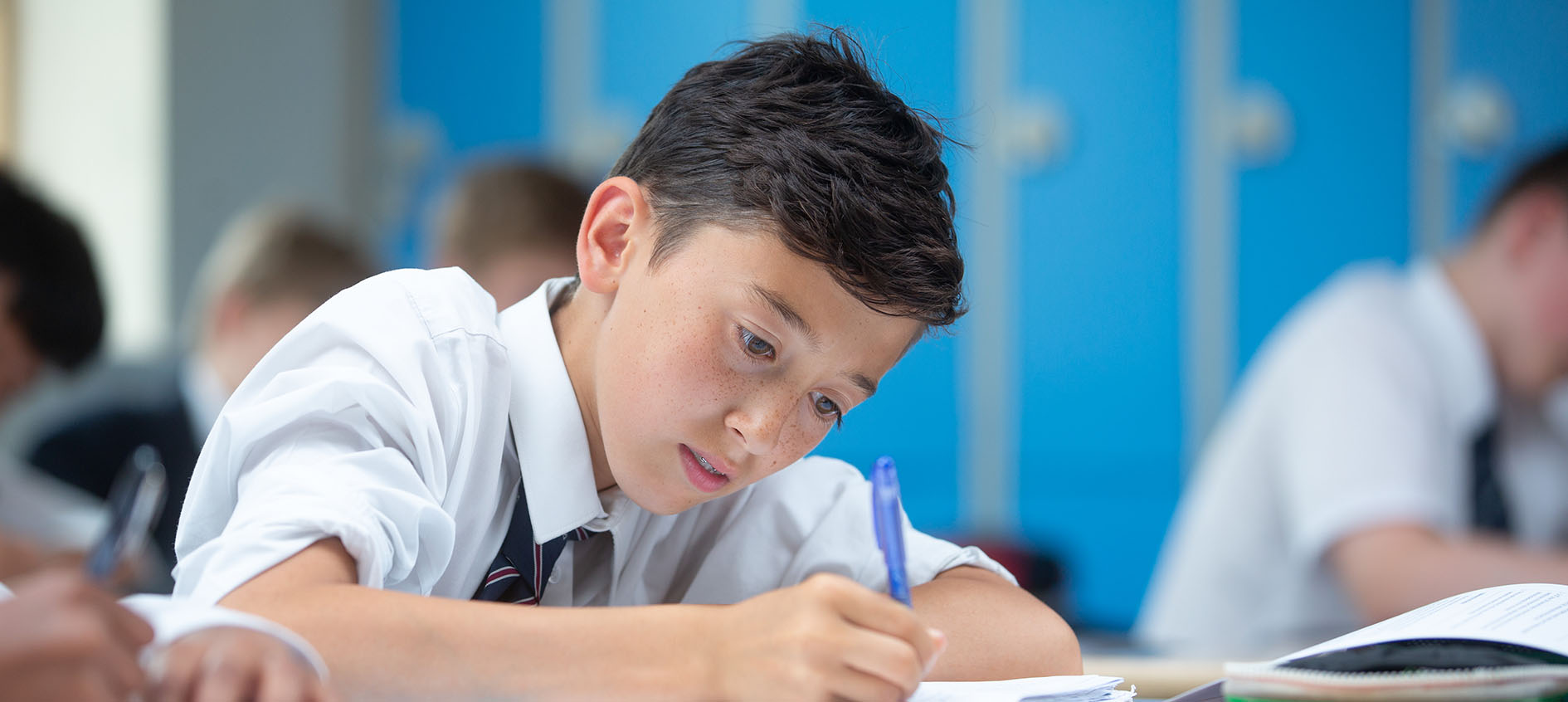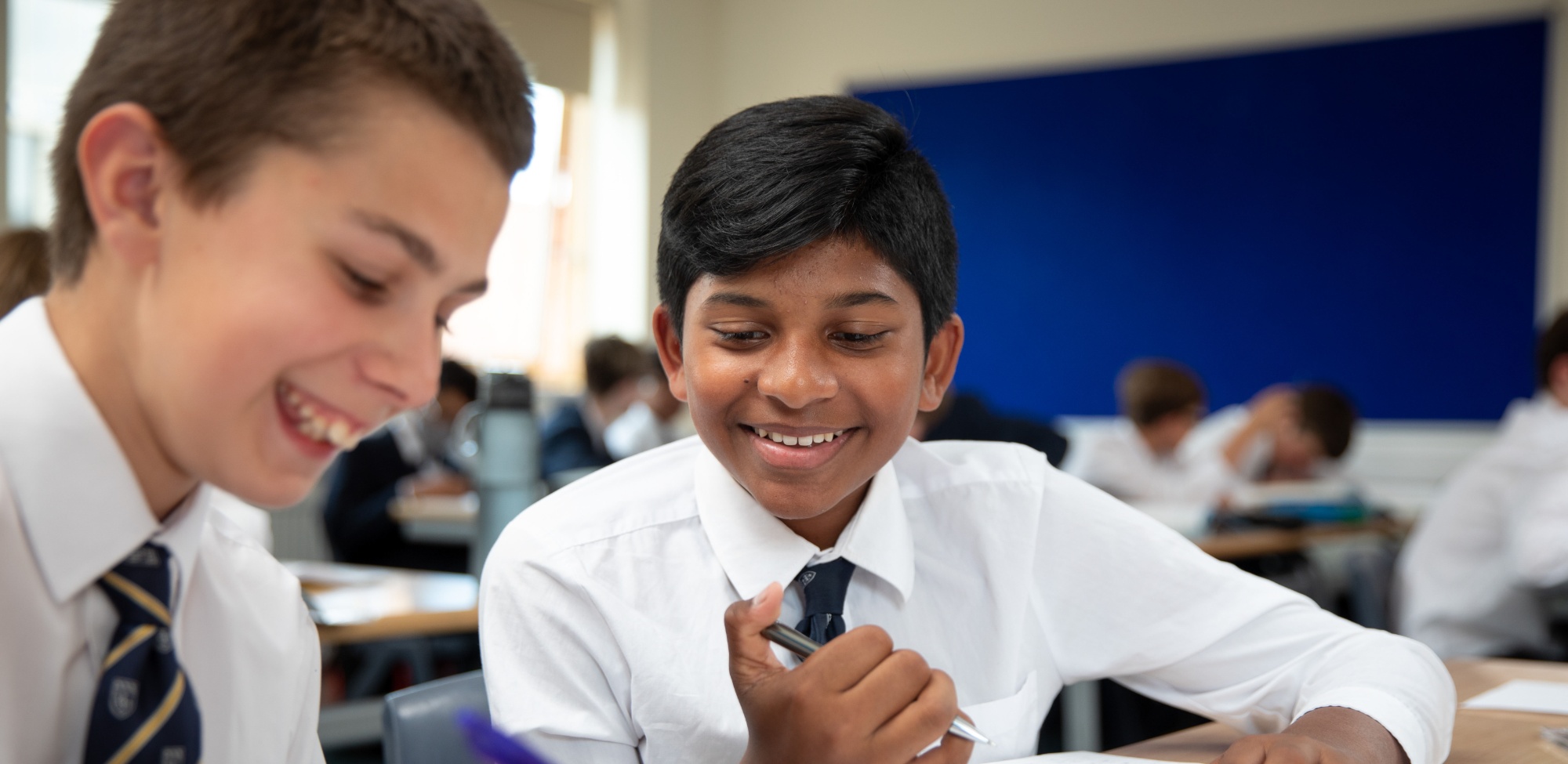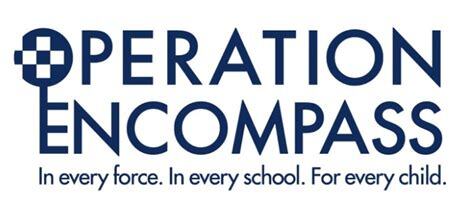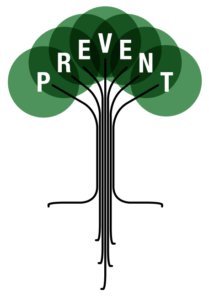Drama
With some of the finest arts facilities in the country and experienced professionals in support it is no surprise that drama is a key part of Warwick School life. Our dynamic and popular curriculum for all age-groups is backed up by a diverse programme of workshops, trips and performance opportunities ensuring the performing arts are experienced, celebrated and enjoyed by all.
From their earliest days in the school pupils develop their core skills developing creativity, fostering collaboration and building positive self-esteem. Performance and presentational techniques are taught alongside this, ensuring the pupils become sensitive, disciplined and confident communicators with ideas they wish to express about the world around them and creative ways to do so.
We take pride in our extensive Co-Curricular programme. With support from our dedicated Graduate Assistants, we offer a wide range of opportunities. Productions provide an outstanding vehicle for the pupils to work constructively together throughout the year. Many enjoy providing production support through technical, set design and crew or costume/make-up roles. Furthermore, pupils can work towards LAMDA examinations and gain valuable qualifications in acting, verse and prose.
Pleasingly many Warwickians go onto the creative industries as actors, theatre makers or technicians but all enjoy lifelong benefits including a deep appreciation of the arts brought about by direct and positive first-hand experience.
Course Specification
This is a two-year course which is examined in the following ways:
Component 1
Devising Theatre (40%)
– including 1.5 hour
evaluative report
Component 2
Performing from a Text (20%)
– marked by a visiting examiner
Component 3
Interpreting Theatre (40%)
– analysing a set text and evaluating live theatre
Following a course in GCSE Drama will enable pupils to:
- actively engage in the process of dramatic study in order to develop as effective and independent learners and as critical and reflective thinkers with enquiring minds;
- work imaginatively and creatively in collaborative contexts, generating, developing and communicating ideas;
- reflect on and evaluate their own work and the work of others;
- develop and demonstrate competence in a range of practical, creative and performance skills;
- develop a basis for their future role as active citizens in employment and society in general as well as for the possible further study of drama;
- consider and explore the impact of social, historical and cultural influences on drama texts and activities.
Although the emphasis is primarily on performance, pupils interested in developing technical skills (design, costume and lighting/sound) are welcomed on the course. The drama team consists of a wide range of professional theatre practitioners including design and technical staff. All pupils will have access to the department's outstanding resources, both in studio and ancillary spaces and through those provided by the Bridge House Theatre and Warwick Hall venues. The course is supplemented with a first-class range of co-curricular performance opportunities including those in national festivals, which though optional have clear benefit to participants as they provide further means of applying taught skills in a live performance context.
Alongside providing a solid foundation for anyone wishing to follow an arts-based career, the course develops ‘transferable’ skills which are useful in a wide range of careers requiring confident communications and presentation. Many choose the subject for the way it enhances their self-confidence, initiative, problem solving capabilities and creativity.
A Level Drama and Theatre would suit candidates who…
- Wish to develop skills in making, performing, interpreting and understanding drama and theatre
- Enjoy performing or taking production roles and who wish to deepen and extend their knowledge and experience
- Enjoy working in collaborative groups, whilst researching and developing their individual skills
- Would like to follow a creative or a communication based career path
- Are keen to understand and experience the collaborative relationship between various roles within theatre
- Wish to develop the creativity and independence to become effective theatre makers
Component 1
(40%) candidates undertake exploration of one key extract from a performance text where they interpret, create and develop ideas with the aim of devising an original piece for performance. For this component the assessment is through performance and written portfolio.
Component 2
(20%) the emphasis is on the development of a group performance of a performance text and duologue chosen by the school. Candidates are assessed by an external examiner who attends the performances.
Component 3
(40%) is a written exam requiring pupils to consider, analyse and evaluate how different theatre makers create impact. Pupils critically analyse and evaluate their experience of live performance. They will also consider the methodologies of practitioners and interpret texts in order to justify their own ideas for a production.
Many of our pupils go on to pursue careers in the creative industries, but the course is equally applicable to many other areas such as law, communications and journalism. The skills are genuinely transferable and enable a young person to be a creative, supportive and disciplined team member in a wide-range of contexts.


